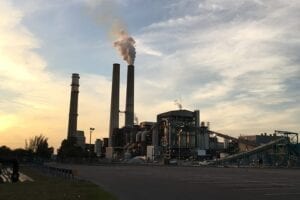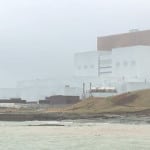Nuclear energy giant Électricité de France (EDF) on Wednesday clinched a deal to acquire British Energy plc—a privatized UK company that provides almost 20% of Britain’s electricity—for £12.5 billion ($23.18 billion).
On Thursday, the majority French state-owned company bought a 26% stake in British Energy through its subsidiary Lake Acquisitions as part of its takeover deal. EDF has agreed to purchase the UK government’s full 35% stake in British Energy.
British Energy operates eight of the UK’s 10 nuclear power stations—10,000 MW at combined capacity—and a 1,960-MW coal-fired plant. The company nearly collapsed in 2002 because of weak power prices. It was then bailed out by the government and its shares were relisted in 2005.
Earlier this year, the UK government had conducted a much-publicized auction, seeking buyers for its 35% share in British Energy. Despite vying for the share with German power giants RWE and E.ON, Sweden’s Vattenfall, and Spain’s Iberdrola, EDF was the only company to make a firm cash offer (735 pence per share). British Energy eventually turned down EDF’s bid because investors felt it undervalued the company.
But last week, after tough negotiations, EDF raised its price to 774 pence per share. The deal was welcomed by the UK government, which said it would “mark the successful culmination of the restructuring of British Energy and provide funding for the future decommissioning of the company’s eight existing nuclear power stations.”
EDF said it would build four European pressurized reactors (EPRs), each costing up to £2 billion at two of British Energy’s eight nuclear sites: Hinkley Point in Somerset and Sizewell in Suffolk. The reactors would produce an estimated 6.4 GW of electricity and cost up to £2 billion each. The first new reactor could be on-line by the end of 2017, EDF said.
The government said on Wednesday it had also agreed that EDF will sell land, in pre-agreed circumstances, to other potential nuclear operators so as to accelerate development of new nuclear power station in the UK. The agreement covers British Energy’s land at Bradwell and land alongside existing stations at either Dungeness or Heysham.
Earlier this month, the UK’s Nuclear Decommissioning Authority had also announced that it intends to auction its Wylfa, Oldbury, and Bradwell sites.
Several European giants had expressed interest in the British Energy sites, UK newspapers reported last week. The Telegraph also said that Centrica, owner of British Gas, could go so far as to take a 25% stake in EDF’s venture.
But, according to The Times, a clause buried in EDF’s £12.5 billion offer document allows the company to sit on key sites until 2011 or until it has gained planning consent for its two preferred options. That clause has roused anger among EDF’s rivals.
E.ON, for example, warned that it could block development of new plants considered vital to the stability of the UK’s energy infrastructure and slow EDF’s own nuclear development plans “quite markedly,” The Times said. RWE and Sweden’s Vattenfall were also allegedly furious about the clause.
The delays could mean that nuclear plants, which could have been completed by rivals by 2020, may not be completed until years later.
According to the Department of Business, Enterprise, and Regulatory Reform (BERR), EDF’s four reactors would meet only 13% of demand forecasted for the UK by 2020. Delays would present a critical problem for the UK, a country that energy experts say will experience a severe supply shortfall in the coming decade in large part due to the closure of aging coal and nuclear plants starting in 2015.
Energy statistics released only last week by BERR indicate that the UK’s nuclear-powered electricity supply fell 19.3% from last year. Industry reports attributed the decline to falling performance by the country’s deteriorating plants.
According to the statistics, coal-fired power supply was up by 9.1% while that from oil and renewables rose 6.1%.
Sources: EDF, BERR, The Telegraph, The Times
EDF seals British Energy acquisition deal
SHARE:









